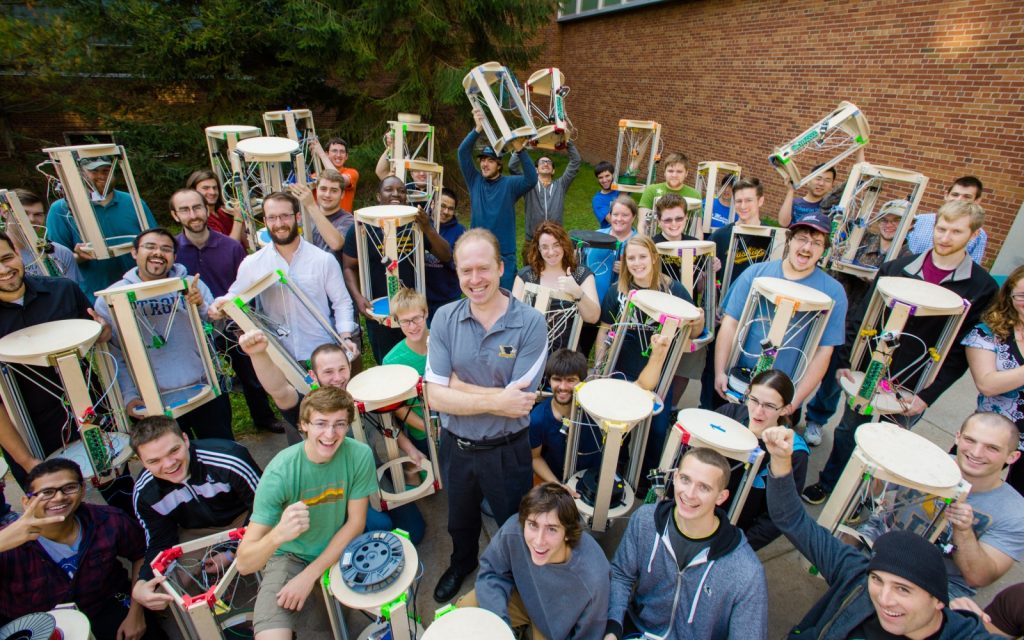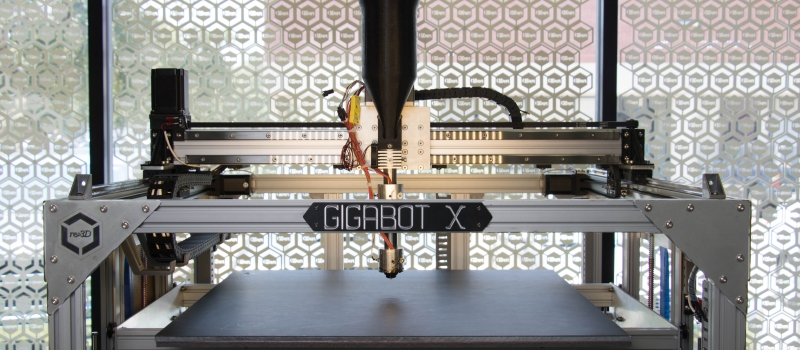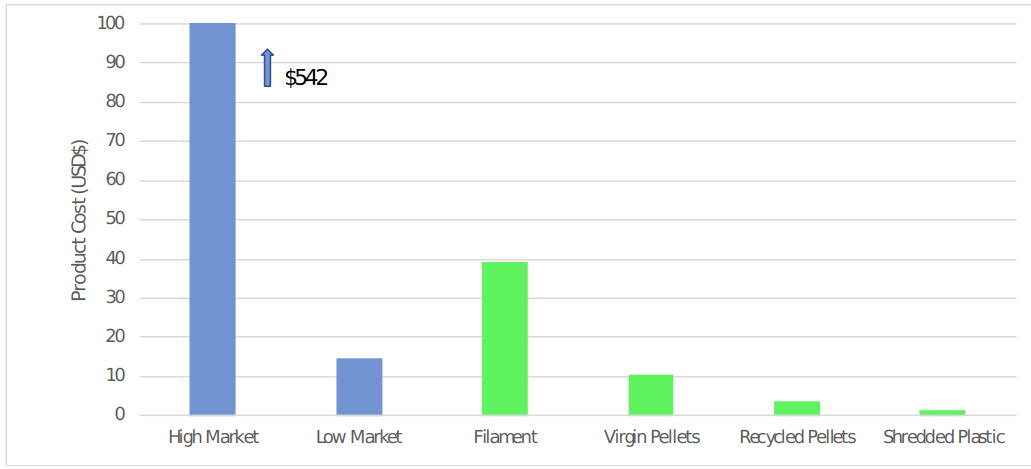Fab Labs are forming a Green Fab Lab Network which will harness renewable resources and 3D printing to build sustainable and circular economies.
In a paper titled, “Green Fab Lab Applications of Large-Area Waste Polymer-based Additive Manufacturing“, scientists from Michigan Technological University and Aalto University, Finland, studied how a Green Fab Lab Network can be economically and environmentally beneficial. Open-source supporter Professor Joshua Pearce also contributed to the study, whose team has earlier shown how to make 3D printing filament by upcycling wood waste.

Making space for sustainability
A Fab Lab, or “fabrication laboratory,” is typically a workshop containing tools and machines like CNC, laser cutters and 3D printers. Conceptualized in 2001 by MIT professor Neil Gershenfeld, currently there are over a 1,000 fab labs around the world, one of the most popular one being in Barcelona, which also has a Green Fab Lab for utilizing renewable resources.
The recent paper attempts to explore the economic impacts and financial reasons for combining 3D printing and renewable resources in Green Fab Labs.
Extruding pellets
According to the authors of the paper, as Fab Labs themselves generate a lot of waste, due to failed and unusable prints, a printer which can create from waste materials would be an ideal choice for the Green Fab Lab concept. However, upcycling plastic into filament degrades the mechanical properties of the plastic. For such reasons, a pellet extruding printer was preferred because it can extrude raw material in various forms, such as pellets, shreds or flakes.
An open source fused particle fabrication (FPF/FGF) 3D printer by re:3D, GigaBot X, and a Lulzbot Taz were chosen for the experiment.

Economic paddling
Three sports items were produced as part of the experiment: a skateboard, a kayak paddle, and snowshoes. These were selected on the basis of their dimensions, popularity among the general population, the possibility of customization and economic value.
After printing the three items, capital and operational costs, such as consumption of electricity and raw materials, were calculated. In conclusion “the Gigabot X, an open source industrial FPF/FGF 3D printer, has significant economic potential when used as a distributed recycling/manufacturing system using recyclable feedstocks in the green fab lab context.”
In addition, the authors state:
“The results showed that FPF/FGF 3D printing is capable of producing large high-value sporting goods products with the three case studies… Using locally-sourced shredded plastic represented not only the best environmental option, but also the most economic.”

Full results of the study can be read in the paper titled “Green Fab Lab Applications of Large-Area Waste Polymer-based Additive Manufacturing.” Published in Additive Manufacturing journal, this research was jointly authored by Dennis J. Byard, Aubrey L. Woern, Robert B. Oakley, Matthew J. Fiedler, Samantha L. Snabes, and Joshua M. Pearce.
Professor Joshua Pearce is nominated for Community advocate of the Year in the 2019 3D Printing Awards. Vote now to decide this year’s winners.
To learn more about innovative uses of 3D printing subscribe to our 3D printing newsletter and follow us on social media: Facebook and Twitter. We also have jobs in the industry, register today at our 3D Printing Jobs page to receive regular updates.
Featured image shows a skateboard 3D printed using upcycled plastic. Image via Elsevier.


